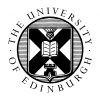© Pint of Science, 2024. All rights reserved.
At first glance astronauts and Olympic athletes could not be more different to critically-ill and cancer patients, but these individuals have more in common than meets the eye. How? Bone and muscle wasting experienced by astronauts in space, and oxygen starvation during intense physical activity and exposure to altitude are serious problems for both groups. Join us to find out how unlikely individuals in peak physical condition are informing research on critical care. Please note that this event takes place on the lower ground floor and is not accessible for those with impaired mobility.
Cancer and Space
When Major Tim Peake, UK astronaut, returned to Earth after 6 months in space, he had lost a significant amount of muscle and bone mass, a result of his extended time spent in microgravity. However, muscle wasting is also a major terrestrial health problem, and is associated with lung, heart, kidney and liver disease; bone fractures; and diabetes. In particular, muscle-wasting secondary to cancer (a syndrome known as cachexia) is a major cause of death. This talk will cover the effects of microgravity on astronauts’ muscles, and how research in this area may help treat cancer on Earth.
Starved of oxygen
Critically-ill patients in intensive care in Edinburgh, Olympic athletes breaking world records at high altitude, and climbers close to the summit of Everest could barely look more different from one another. But they are all limited by one common feature: oxygen starvation. This talk will explore what we can learn from how the body survives when it is starved of oxygen, and discuss the implications of key discoveries in altitude physiology and critical care medicine.
Map data © OpenStreetMap contributors.


